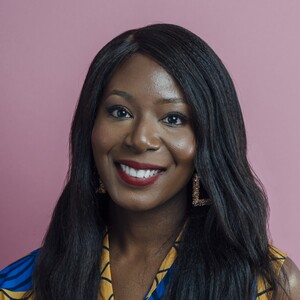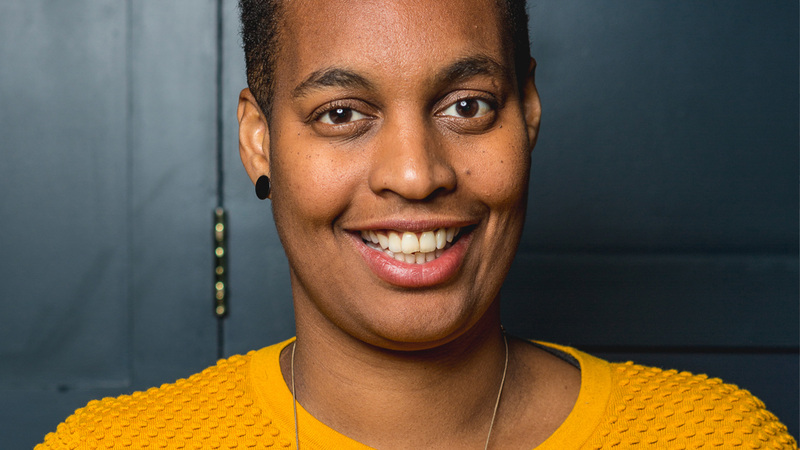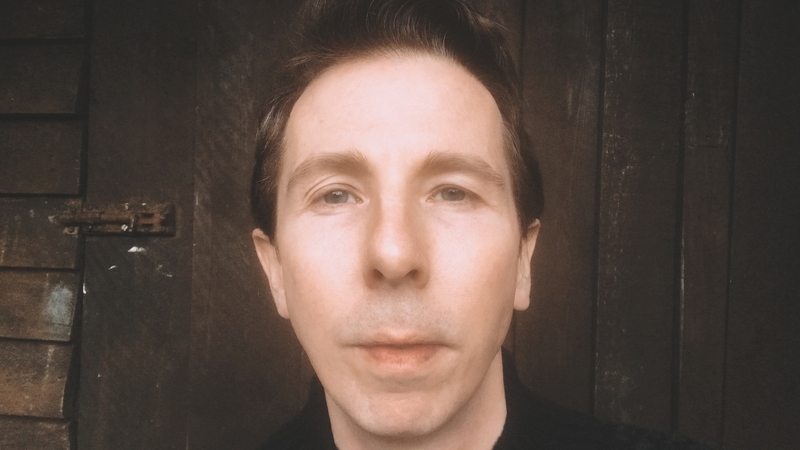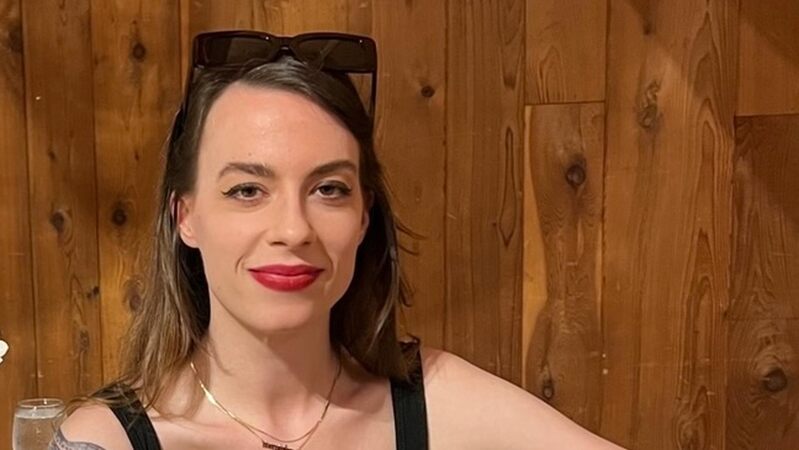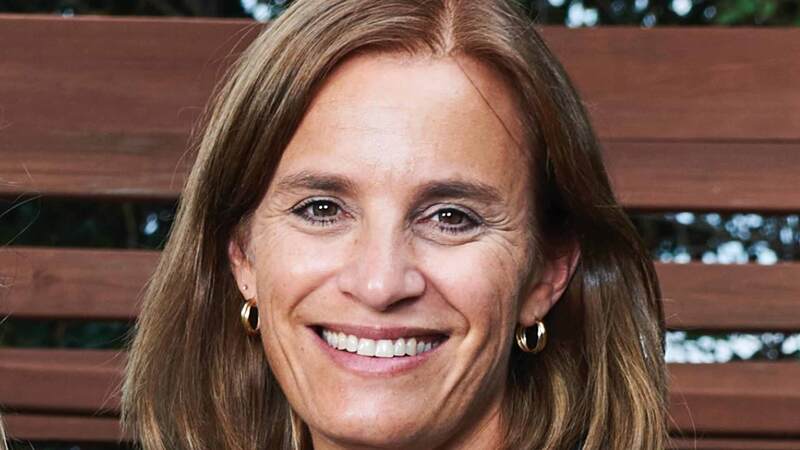You are viewing your 1 free article this month. Login to read more articles.
Yinka, where is your editor? Part 3
Debut author of Yinka Where is Your Huzband, Lizzie Damilola Blackburn, and her editor Katy Loftus at Penguin, dish the dirt on the reality behind the dream of being published. Read the previous part here.
THE AUTHOR: LIZZIE DAMILOLA BLACKBURN
My phone buzzed. My heart thudded. I had just received the email. The email from my editors with my second round of editorial feedback.
I scanned it, and my heart sank. I still had some work to do on polishing my manuscript. And as much as Katy and Pam (my US editor) reassured me that ‘this was normal,’ I was overwhelmed.
"I don’t think I can do it," I sobbed to my husband, after I read the six pages of comprehensive notes. "Maybe I’m not as good as they think." Let’s just say, I went into full-blown imposter syndrome mode.
Their notes included everything from working on the pacing of the novel, to their thoughts on a storyline they still felt wasn't working, to fleshing out a few side characters and highlighting areas where my writing could be stronger. For example, despite being very familiar with the golden rule ‘show don’t tell’, there were places in my manuscript where I was doing a lot of telling. (Covers face.)
Even though I had done countless revisions to land myself an agent and a publishing deal, it was hard to remind myself in that moment that ‘writing is in the rewriting’ (especially when all I’d wanted to do over the Christmas holidays was binge on good food and Netflix).
But like back then, I’d got through it, through perseverance and bloody hard work. So, after great encouragement from my loved ones, I put on my big girl pants and began to work through the edits. I read and digested the notes and all of the comments on my manuscript. It was eye-opening seeing how much my editors picked up. There was the expected ‘you use this phrase a lot’. (In my case, it was the phrase ‘in fact.’) But they also highlighted where I could provide more backstory and description to the characters. Being a thorough person, I made a document with all of my questions and thoughts. I wanted to be prepared ahead of my catch-ups to talk them through.
Katy and Pam were amazing. Honestly, I really did get the crème de la crème. As well as giving me a much-needed pep-talk, they offered some practical tips. For example, to improve the pacing, they recommended plotting my story on a graph to get a visual idea of where the peaks and troughs are.
Nevertheless, there was one feedback in their notes which made me go, Hmm. Without going into detail, it had to do with the plausibility of one of the subplots. Katy and Pam suggested one solution. I suggested another. And my heart and my gut were telling me to go for it.
"I don’t want to come across as being stubborn," I said to Katy during our catch-up. "But deep down, I think the subplot should go in this direction. I know it may require a bit more work, but I really believe that I can pull it off."
Thankfully, Katy reassured me that I wasn’t being stubborn. She actually loved that I was showing my thinking as a writer. And this was a new thing that I’d learnt about the editing process – it’s collaborative. It’s not, ‘I say, so you must do.’ Although for any writers out there, please do take on board your editor’s feedback, especially if what they’re suggesting will improve your writing and characterisation! But on the odd occasion, you may get that gut feeling about how you can solve an issue in your story, and it may differ slightly from what your editors are suggesting. My advice to you: don’t be afraid to be open with them. The fact that you’re both in agreement that there is an issue means that you're half way there! And at the end of the day, it is you who will go off and make the edits, so you need to be confident and fully behind the direction you’ll be heading in. Otherwise, it will show in your writing.
So, did my idea pay off? Well, I’m currently still working on my edits, so I guess you’ll find out another time. But I can honestly say, ‘So far, so good,’ and that I haven’t dug myself into a hole __ (yes, I am resisting adding ‘yet’).
Each day is different – sometimes I work in bed, sometimes at the kitchen table. Sometimes I’m fast, many days I’m slow. But I’m finding that the more time I spend planning before rushing off to make changes to a chapter, the more productive my day is. Okay, there have been a few times when I’ve spent a ridiculous amount of time rewording a sentence. Honestly, Lizzie. Move on!
Nevertheless, my story and my ability as a writer is evolving. And in the end, Yinka’s story will be the best it can be; and it will be worth it.
THE EDITOR: KATY LOFTUS
Have you noticed that Lizzie and I begin every one of these columns with ‘my heart was thumping / I was buzzing when / I felt sick to my stomach when…’? Suffice to say, books are an emotional business! Especially when it comes to The Edit…
My heart was doing its normal anxiety-jig when I sent off my editorial notes to Lizzie. She had already done a really big edit (yes there are sometimes multiple – in fact my most-ever edits was eight!). She had taken out a plot strand and significantly changed the order of events to give the story more of an ‘arc’ – by which we mean the emotional journey you lead the reader on, or in layperson terms, how you create that ‘I couldn’t put it down’ feeling. So I knew that going back to her and saying ‘it still isn’t quite there’ could be emotionally hard to cope with. Especially as we were at the tail end of one of the shittiest years in living history.
Added to that I’ve always felt a good dose of imposter syndrome myself, because I didn’t go to a red brick university or even study English literature. What knowledge I have has been gained through experience; basically a ton of reading and watching how others do it. I’m also reticent about giving difficult feedback because it is not unheard of for editors to receive abuse from authors who don’t like what they’ve suggested (not that I ever for one second thought Lizzie would be one, but fear mode seems to be automatically programmed into me!).
What I’m saying is, the whole editing thing can become very personal. And that’s the thing: a book is personal. Often authors are writing about parts of themselves or their lives, and so feel that any criticism of a book is criticism of them. So harsh words are understandable. But they don’t get you anywhere, and if an editor is communicating well throughout the process, their author should know that an edit isn’t a judgement on them, it’s a judgement on a complex work of art that we hope will be read by thousands of people. We are there to make sure that most of those people will get what they want out of the book, whether that’s a page-turning thrill-ride, a thoughtful conversation-starter, or in Lizzie’s case, a laugh-out-loud-funny and inspiring romcom.
And back to Lizzie, who was admirably sanguine about my suggestions to get her book there – though having read her column I now know she was panicking inside! In typical Lizzie fashion she went away, gave it some thought, then sent me a very detailed multiple-page document back with all her ideas, including the one she talks about in her column. I can tell you this woman has serious project management game.
Of course, the fact that editing is just one person’s experienced opinion means that an editor might not be right all the time. While they might feel something very strongly, they are not God of Books. Also, sometimes there isn’t a right answer, only multiple solutions. With Lizzie’s book in particular, I also knew that I had a lack of in-depth knowledge about British-Nigerian culture, so was prepared to be wrong on multiple counts! (To fill that gap we are currently recruiting for a copyeditor to help us, see below for more information if you’d like to help us.)
As Lizzie says, she is still in the midst of her rewrites. We are both on tenterhooks to see if the next draft will be the one, and we’ll let you know! But I do know that, having gone through this second round, our relationship has only got stronger. Like any romantic relationship, you only know if you can make it long-term once you’ve been through the wringer together. And I have a feeling that Lizzie and I will be an old married couple before you know it.
* If you’re an experienced copy/line editor and would like to help us edit Yinka, Where is Your Huzband?, please get in touch with @KatyLoftus via Twitter!
